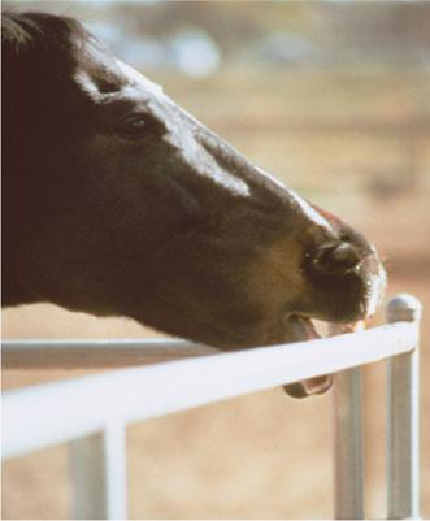Agriculture Reference
In-Depth Information
his neck, and swallows air in labored gulps. Although, at first glance, you may think a crib-
ber is a wood chewer or vice versa, these are two very different behaviors. The horse that
started chewing wood and later became a cribber probably would have become a cribber
even if he was kept in an all-metal stall. Cribbers are often nervous, neurotic individuals
that find comfort in the ritual. Research suggests that cribbing releases endorphins (opiates)
from the brain, giving the animal a natural, habit-forming high, so it is easy to understand
why cribbing tends to be a permanent vice. Horses that crib are often thin, have abnormal
dental wear, and sometimes suffer colic from swallowed air.
Because cribbers are often more interested in cribbing than in eating, they waste a lot of
time and energy pursuing the vice and tend to be hard keepers. Cribbing is usually man-
aged, but not cured, by the use of an anticribbing collar. Drugs and surgery are other op-
tions you can discuss with your veterinarian.
When a horse is a cribber, he is obsessed with grabbing on to an object with his in-
cisors and gulping air. He'd rather crib than eat.

